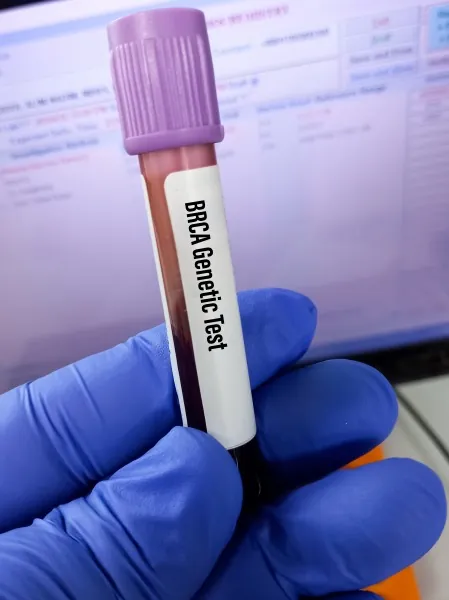
Groundbreaking Study Reveals Surprising Mechanism Behind BRCA1 Gene Mutations and Breast Cancer Risk
2024-11-11
Author: Siti
Study Overview
A recent study from Harvard Medical School has overturned long-standing assumptions about the BRCA1 gene and its role in breast cancer, revealing that even one mutated copy of the BRCA1 gene can significantly elevate cancer risk on its own, without needing the traditional second 'hit.' This finding raises fresh hopes for targeted cancer prevention strategies.
Traditional Understanding
Traditionally, the understanding has been that women inherit one mutated BRCA1 gene from a parent, which increases their likelihood of developing breast cancer, but they are generally protected as long as their second BRCA1 copy remains healthy. However, this groundbreaking research, published in Nature Genetics on November 11, indicates that even a single faulty BRCA1 copy can render breast cells more susceptible to cancer.
Insights from the Study
Research veterinarian Joan Brugge, a senior author of the study, stated, 'Our findings reveal that the two-hit hypothesis of cancer development is only a partial explanation for how BRCA1 mutations lead to breast cancer.' This study indicates that the presence of a single defective BRCA1 gene may initiate changes in breast cells that predispose them to cancer, prompting a shift in how we understand cancer mechanisms.
Experiment Details
The pivotal research involved experiments on mice with variant BRCA1 gene statuses to examine tumor development timelines. Mice with one faulty and one normal BRCA1 copy developed mammary tumors significantly earlier—about 20 weeks sooner—than those that started with two normal copies of BRCA1 which later lost both. This dramatic variance suggests that mere inheritance of a mutated BRCA1 gene creates an internal environment that hastens cancer’s onset.
Mechanism Behind Cancer Risk
But how exactly does one mutated BRCA1 copy trigger these dangerous changes? The study illuminated that cells carrying a single mutation show significant alterations in chromatin structure—the material that packages DNA in the nucleus. These profound reorganizations allow cancer-promoting genes like WNT10A to become more accessible and possibly overactive, leading to accelerated proliferation of breast cells and tumor formation.
Future Research Directions
This study not only deepens understanding of breast cancer but also compels researchers to explore whether similar mechanisms may be at play in other BRCA1-related cancers such as ovarian, pancreatic, and prostate cancers. Future investigations could potentially reveal new therapeutic targets focused on reversing chromatin alterations and preventing premature tumor development.
Implications for Patients
For individuals with BRCA1 mutations, the implications of these findings are monumental. Current prevention strategies include highly invasive options like mastectomies, which reduce breast cancer risk by up to 95 percent. However, the research opens the door to innovative therapies that could block the precancerous influences of BRCA1 mutations, providing patients with less drastic preventive measures.
Conclusion
Thus, this Harvard study not only reshapes the narrative surrounding BRCA1 and breast cancer but also sparks new avenues for research that could change lives and improve outcomes for thousands affected by genetic cancer predispositions.
Stay Tuned!
Stay tuned as we continue to cover developments in this essential area of cancer research!



 Brasil (PT)
Brasil (PT)
 Canada (EN)
Canada (EN)
 Chile (ES)
Chile (ES)
 España (ES)
España (ES)
 France (FR)
France (FR)
 Hong Kong (EN)
Hong Kong (EN)
 Italia (IT)
Italia (IT)
 日本 (JA)
日本 (JA)
 Magyarország (HU)
Magyarország (HU)
 Norge (NO)
Norge (NO)
 Polska (PL)
Polska (PL)
 Schweiz (DE)
Schweiz (DE)
 Singapore (EN)
Singapore (EN)
 Sverige (SV)
Sverige (SV)
 Suomi (FI)
Suomi (FI)
 Türkiye (TR)
Türkiye (TR)